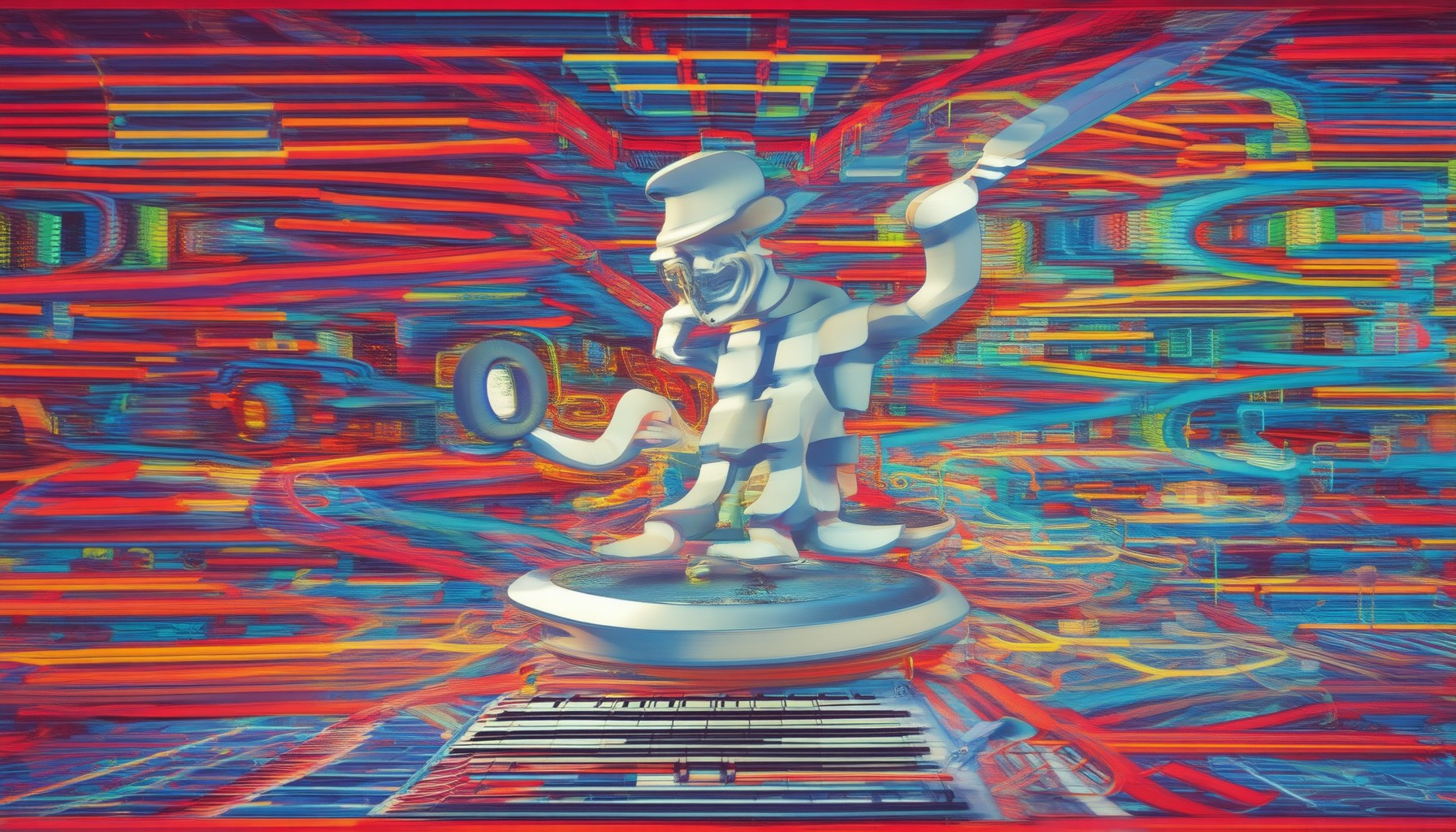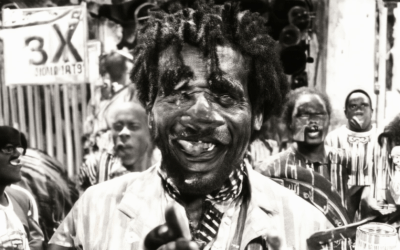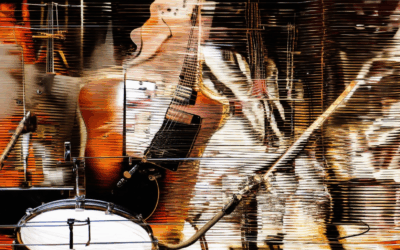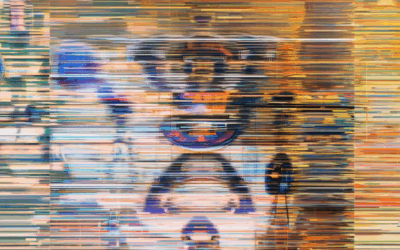Funk music, a vibrant and dynamic genre born from the fusion of African and American musical traditions, has left an indelible mark on the world of sound. With its deep-rooted history and evolutionary journey spanning decades, funk music continues to captivate audiences worldwide. This article delves into the origins of funk, tracing its development across regions and through influential artists who shaped its unique sound. From its humble beginnings in New Orleans to its global reach, funk music has become a cornerstone of modern music culture. By exploring its key figures, cultural impact, and evolution over time, this piece offers a comprehensive overview of funk’s past, present, and enduring legacy.
Key Takeaways
- Funk Music Began in the Mid-1960s: Emerging as a transformative force during this period.
- James Brown is the Godfather of Funk: A legendary figure whose influence defined the genre.
- Blended R&B, Gospel, and Rock: Reflecting the musical mosaic that shaped funk.
- Contributions From Artists Like George Clinton: Highlighting collaborative efforts that enriched the genre.
- Evolved Through Collective Creativity: Showcasing teamwork behind funk’s growth.
- Rooted in African American Cultural Heritage: With deep ties to Black music traditions.
- Iconic Albums Shaped the Genre: Classic works that remain foundational today.
- Influence Spans Decades: Continuing to inspire new generations of musicians.

What Are the Origins of Funk Music?
Funk music originated in the mid-20th century among African American communities in the United States, emerging from a mix of rhythm and blues (R&B), jazz, and soul music. The genre gained prominence in the 1960s and 1970s, blending African rhythms with funk grooves and psychedelic rock influences. Funk became a cornerstone of Black culture, reflecting social and political struggles of the era.
Influences on Funk Music
- Roots in African American Music : Funk draws from traditional African musical traditions, including polyrhythms and call-and-response patterns, which were passed down through generations.
- Impact of Jazz : Jazz musicians like Louis Armstrong and Charlie Parker influenced early funk pioneers, contributing to the development of syncopated rhythms and improvisation.
- Soul Music Influence : Soul music, particularly the work of artists like Sam Cooke and Otis Redding, laid the groundwork for funk’s emotional depth and rhythmic complexity.
Key Artists and Contributions
- James Brown : Often regarded as the “Godfather of Funk,” Brown popularized the genre with his dynamic vocals and hard-hitting basslines, creating iconic tracks like Super Bad and Get On Up .
- George Clinton and Parliament-Funk Alliance : Known for their socially conscious lyrics and intricate arrangements, groups like Parliament and the Funky Drummers helped define the genre’s sound.
- Other Notable Acts : Artists such as Curtis Mayfield, The Meters, and The JB’s also contributed significantly to the funk movement, blending soul, rock, and funk elements.
Cultural Impact
Funk music transcended its musical roots, becoming a powerful expression of Black identity and resistance. Its infectious grooves and raw energy inspired countless genres, including hip-hop, disco, and contemporary R&B. Funk also influenced fashion, with its flamboyant styles and dance moves becoming synonymous with the 70s cultural revolution.
If you’re interested in exploring funk further, visit Tiger Funk for in-depth articles, artist profiles, and historical insights into this influential genre.
Who Influenced Funk Music?
Funk music emerged in the mid-1960s, drawing from a rich tapestry of African American musical traditions, including jazz, soul, and African rhythms. Several key figures and movements shaped the development of funk, influencing its evolution and global reach.
- James Brown
Often referred to as the “Godfather of Funk,” James Brown’s dynamic vocals, fluidic basslines, and high-energy performances set the foundation for the genre. His influence extended beyond music, impacting fashion and culture. - Motown and Psychedelic Soul
Artists associated with Motown, such as The Temptations, The Supremes, and Diana Ross, blended soul and funk, creating a sound that resonated deeply with audiences. Groups like The Four Tops and The Isley Brothers also contributed significantly to the genre’s growth. - Curtis Mayfield and The Impressions
Known for their socially conscious lyrics, Curtis Mayfield and The Impressions’ integration of soul and funk inspired numerous artists, contributing to the genre’s message-driven ethos. - Parisian Funk
The French capital played a crucial role in shaping funk’s international appeal. Bands like Les Surprises and Noir et Blanc brought a unique European flair to the genre, creating a distinctively French version of funk. - British Funk
The UK fostered its own funk scene, with acts like The Soul Searchers, The Counts, and The Beginning of the End gaining recognition for their contributions. British funk often incorporated elements of mod culture and soul. - Hip-Hop Influence
Funk served as a precursor to hip-hop, with DJs like Afrika Bambaataa and artists like Grandmaster Flash and Kool Herc sampling funk records to create breakbeats. This connection solidified funk’s legacy in the evolution of hip-hop culture. - Artists of the 70s and 80s
Artists such as Prince, Rick James, and groups like Zapp & Roger Troutman embraced funk elements, infusing their music with its signature rhythms and grooves. These artists further expanded funk’s reach and influence. - Instrumental Pioneers
The Meters, a New Orleans-based band, were renowned for their tight rhythm sections and deep grooves, laying the groundwork for much of funk and rock music. Their work remains a cornerstone of the genre. - Comedy and Funk
While less well-known, bands like Baby Hue Ducks brought humor and a quirky take to funk, showcasing its versatility and appeal across different audiences.
Funk’s influence extends far beyond its origins, shaping genres from jazz and soul to hip-hop and rock. Its rhythmic complexity and emphasis on groove continue to resonate with musicians and listeners worldwide.

How Has Funk Changed Over Time?
Funk has undergone significant transformations since its emergence in the late 1960s, evolving from a grassroots movement to a globally influential genre. Its journey reflects broader shifts in music, culture, and technology.
The Birth of Funk
Funk originated in African American communities in the United States during the late 1960s and early 1970s. It emerged from a mix of rhythm and blues, jazz, and psychedelic rock, often serving as a reaction against the constraints of traditional genres. Artists like James Brown, George Clinton, and Curtis Mayfield were instrumental in establishing funk as a distinct sound characterized by syncopated basslines, offbeat rhythms, and bold, confident vocals.
Commercialization in the 1980s
By the 1980s, funk began to move into the mainstream. Artists like Michael Jackson, Prince, and Madonna incorporated funk elements into their music, blending it with pop and dance beats. This era saw funk become more polished and accessible, appealing to a wider audience while losing some of its raw, underground energy.
Influence of Hip-Hop
Starting in the 1990s, hip-hop began to play a major role in shaping funk’s trajectory. Artists like Big Boi and OutKast popularized a hybrid style known as “funktronica,” combining funk with electronic and hip-hop influences. This subgenre brought a fresh perspective to funk, incorporating samples, beats, and lyrical content that resonated with younger audiences.
Contemporary Funk Today
Modern funk continues to evolve, embracing a global perspective. Artists from around the world draw inspiration from classic funk while incorporating contemporary elements like lo-fi beats, trap, and house music. Groups like The Soul Searchers, The Internet, and Jazzy B are keeping the spirit of funk alive, experimenting with new sounds and reaching new listeners through digital platforms.
Cultural Impact
Funk has always been more than just music; it’s a reflection of societal changes. From its roots in civil rights activism to its current role in fostering cultural exchange, funk has served as a powerful medium for expression and resistance. Its enduring appeal lies in its ability to adapt while staying true to its core principles of authenticity and groove.
Tiger Funk remains committed to preserving and celebrating the rich history of funk while exploring its future possibilities. By curating articles, artist profiles, and album reviews, we honor the genre’s legacy and inspire a new generation of musicians and fans.

Who Invented Funks?
The invention of funks is largely attributed to James Brown, though it evolved through contributions from various artists and musicians. Funks began to emerge in the mid-1960s, with Brown’s influence being pivotal. His unique style, characterized by syncopated rhythms and strong beats, laid the groundwork for the genre. However, artists like George Clinton, Bootsy Collins, and members of Parliament and Funky Drummers also played crucial roles in shaping funks into what it became known as today. The term “funk” itself gained official recognition later, initially used as slang before entering mainstream usage. Thus, while James Brown is often hailed as the father of funks, the genre’s evolution involved a collective effort from numerous talents, reflecting the broader cultural shifts of the era.
Who Is the Founding Father of Funk?
The founding father of funk is widely regarded as James Brown , an American singer, songwriter, and performer who is often referred to as the “Godfather of Funk.” His contributions to the genre began in the late 1950s and early 1960s, blending elements of rhythm and blues, gospel, and rock to create a distinctive sound that became synonymous with funk.
Brown’s influence on funk music cannot be overstated. His dynamic vocals, energetic performances, and innovative use of beats and rhythms set the foundation for what would later become a global musical movement. Alongside him, figures like George Clinton, who was a key member of the Parliament-Funk Alliance, also played a significant role in shaping the genre.
While there may be debate about who precisely “founded” funk, James Brown is consistently acknowledged for popularizing and defining the genre, making him the most widely recognized figure associated with its creation.
Tiger Funk is a celebration of this rich history, offering in-depth articles, artist profiles, and album reviews that highlight the evolution of funk, soul, and jazz fusion. Explore our comprehensive resource to learn more about the origins and legacy of funk music.

Who is Considered the Godfather of Funk Music?
The term “godfather of funk” is widely attributed to James Brown, a legendary figure in music history whose contributions to funk and soul laid the foundation for the genre. Brown’s dynamic stage presence, distinctive vocals, and groundbreaking recordings redefined rhythm and blues, influencing countless artists and shaping funk music as we know it today.
Funk emerged in the mid-1960s, blending elements of rhythm and blues, gospel, and psychedelic rock. James Brown’s innovations in beat and timing, along with his electrifying live performances, set a new standard for the genre. His iconic tracks like Sex Machine and I Feel Good remain timeless classics of funk.
While James Brown is often hailed as the godfather, other influential figures like Curtis Mayfield, George Clinton, and the Parliament-Funk Alliance also played pivotal roles in shaping funk music. Their contributions further enriched the genre, making it a multifaceted art form with deep roots in African American culture.
Thus, James Brown is undeniably the most recognized pioneer, but the evolution of funk owes much to the collective efforts of many visionary artists.





0 Comments